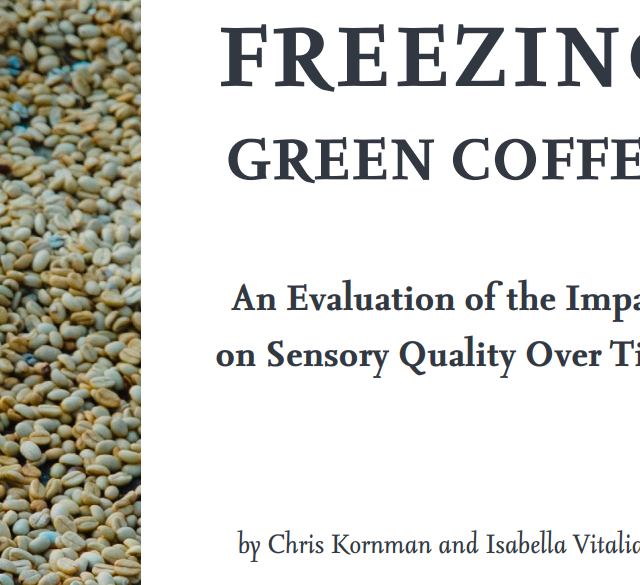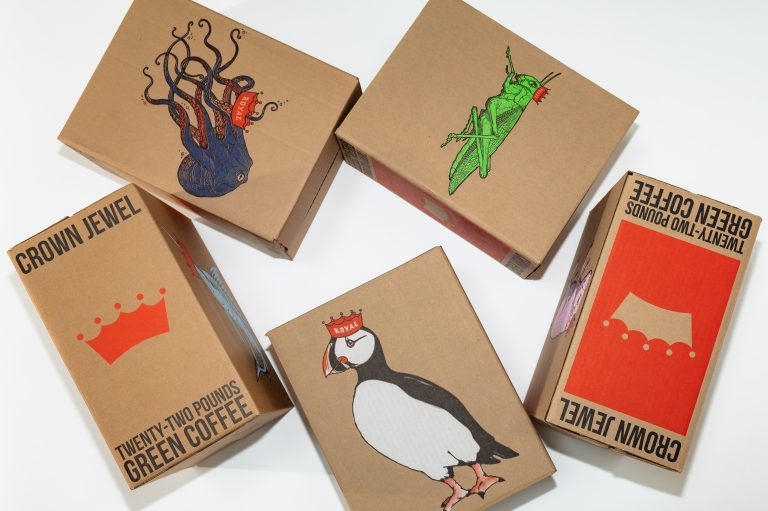In the Third Wave coffee market, where the unique qualities of the producer, region, and altitude are popular to tout, the specialty coffee industry has contributed to a romanticized story of how coffee is sourced. The storyline which most consumers understand as ‘direct trade’ follows a roaster spending a significant amount of time searching for the best coffee at origin, finding a farmer that they enter a close relationship with, and paying that farmer directly for the coffee that’s shipped back home (I always pictured a modern-day Indiana Jones). While there can be truth in this narrative, the image as a whole might not be as forthcoming as it seems. Most notably, the crucial roles of the importer and exporter are completely omitted.
Despite some of the negative press around the term “middlemen” in the coffee trade, importers and exporters have enormous potential to positively impact the lives of the people they work with. Royal Coffee offers a shining example of an importer that pushes beyond their role as a broker and seizes the opportunity to proactively improve the industry. Their unique commitment to making educational resources accessible and approachable strengthens and expands the coffee community (have you heard about The Crown?). It wasn’t until recently, when I became a first-time buyer, that I fully began to appreciate the amount of value that exporters can add along the supply chain too.
Last month, in collaboration with Royal, InConexus hosted their third-annual “Lo Mejor de…” event as a part-competition, part-origin trip for green coffee buyers from around the globe. Though Royal works with a number of top-notch exporters across all origins, this Colombian exporter has shown an extraordinary commitment to improving the quality of coffee and the quality of life of their producers. I was honored to attend the Lo Mejor de Huila, not only for the chance to cup the best coffees from the famed region of Huila (check out some of the coffees here) but to witness the principle of “shared value” in action.
For InConexus, the event was the perfect platform to highlight some of the behind-the-scenes work of their team while showcasing coffees from Colombia’s recently completed harvest. I quickly learned that InConexus doesn’t just buy and export coffee; they also run a number of supporting programs to build mutually beneficial relationships with their partnering producers. They don’t stop at the mantra “higher quality for higher prices.” InConexus aims to improve the economic, environmental, and social situation of their producers. In turn, this consistently delivers a product that positions InConexus as the best source of Colombian fine coffee.
In between the competition cupping evaluations, we toured the regional dry mill, warehouse, and cupping lab for an inside peek into their exporting operations. With quality as a top priority for InConexus, their team provides producers with constant analyses, training, and logistical support. They create a customized approach for each producer depending on their exact needs and farming conditions and then offer continuous feedback through field assistants, technical assistants, agronomists, and professional cuppers. According to Adriana Villanueva, the commercial director of InConexus, it’s not enough to just increase a producer’s income, they need to be learning and growing towards their potential to achieve autonomy and empowerment.
Lo Mejor de Huila also served as an important opportunity to de-anonymize the value chain and jointly exchange ideas, opinions, and perspectives between producers and buyers. Adriana explained that she works everyday to de-commoditize the value of coffee, and fostering a sense of personal connection to the producers is a key element in achieving that. To break down barriers and encourage conversations, we toured a few of the top-performing farms and shared dinner – and the dance floor – with some of the personalities behind the beautiful coffees we were cupping.

Throughout the event, I was repeatedly struck by the fact that InConexus is in the business of people just as much as they are in the business of coffee. By encouraging their producers to become better business men/women they are indirectly improving the quality of coffee being produced. They are “doing good”, not at the expense of their bottom line but in support of it. This idea that business can be an agent of positive change positions InConexus as a real player and solution-provider in the quest towards sustainability. Although I did not attend the event with the intention to purchase anything at the auction, I was so inspired by what I saw that I jumped into the bidding ring and walked away with my first green coffee purchase under my belt.

Obviously, not all coffee is bought at origin. In most cases roasters buy coffee directly from importers (enter Royal, stage left) with exporters operating in the shadows. In either case, importers and exporters are an indispensable part of the long and often complicated journey coffee takes from seed to cup. Many of them are doing some impressive things for the industry. I’m hoping that encouraging stories of successful relationships along the supply chain can bubble their way to consumers so the gems, like Royal and InConexus, can contribute to a clearer picture and replace the Indiana Jones fantasies.


